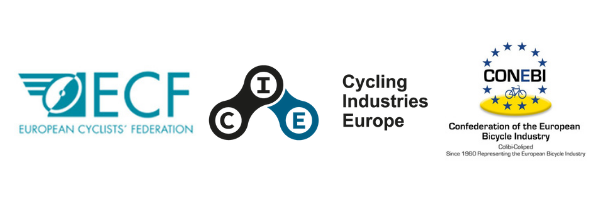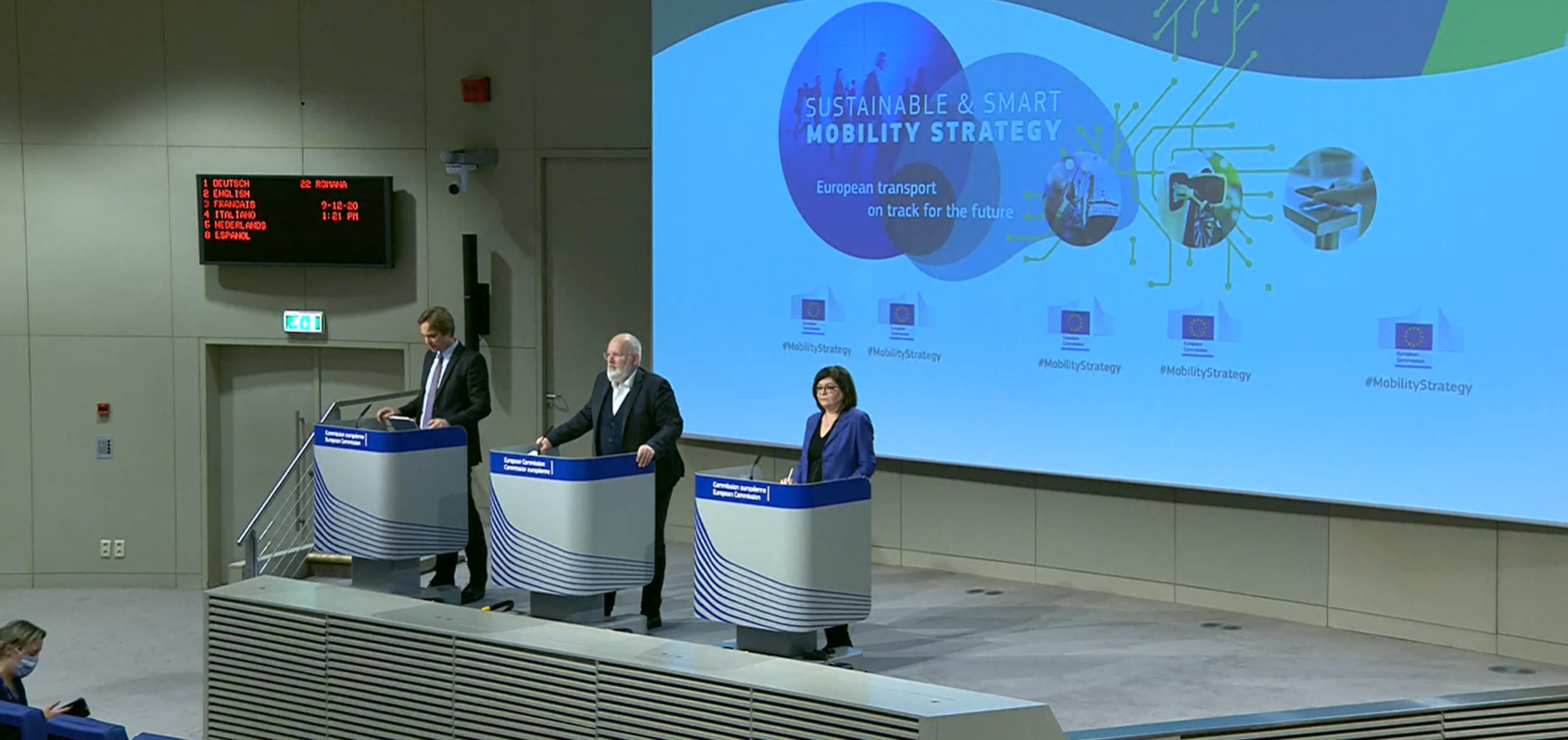"It's a start, but more ambition and concrete actions needed"
9 December, Brussels - The European Commission today released its Sustainable and Smart Mobility Strategy. The strategy is part of the European Green Deal, which aims to achieve a 90% reduction in greenhouse gas emissions from transport, in order for the EU to become a climate-neutral economy by 2050.
Cycling international associations ECF, CIE and CONEBI gave a cautious welcome to the positive statements about cycling, but also highlighted that a lot more work is needed to identify how more ambitious change can be built into the Commission’s action plans.
The real highlights for cycling reflect the coordinated advocacy work of the associations in recent months, particularly working with the EU Green Deal leadership of Executive Vice-President Frans Timmermans.
- A target to double cycling infrastructure in the EU is the most eye-catching – the most ambitious statement made by the EU about cycling to date.
- The Commission’s commitment to improve the current European framework for urban mobility, will include policies and financial support that reflect the importance of urban mobility, including safe infrastructure for cycling and walking, and innovative MaaS concepts including shared bike services.
- Strategic Urban Mobility Plans should contain significantly strengthened goals of zero emissions and zero fatalities, while Sustainable Urban Logistics Plans are expected to accelerate the deployment of zero-emissions solutions such as cargo bikes.
At a press conference for the launch of the strategy EU Vice-President Frans Timmermans said “Cars will be less dominant on our streets. Alliances with cities and regions will offer clean public transport and 5000 km extra bike lanes. One lesson we can draw from the horrible Covid crisis, in cities with plenty of bike lanes, citizens could keep moving”.
However, the associations regret that the strategy does not yet set specific milestones for cycling as a transport mode in the transport system of the future, nor does it incorporate specific, explicit actions to increase cycling uptake in its action plan.
ECF co-CEO Jill Warren: “While we are pleased that the Commission agrees it is essential to make sustainable mobility alternatives such as cycling more widely available to citizens and mentions a target for new cycling infrastructure, we can only view this as a start in terms of the effective policies and funding needed to engineer the major, further shift towards more cycling that is essential to reducing transport emissions by 90% in Europe.”
CIE CEO Kevin Mayne: “Cycling companies should be positive about this new strategy, because we have made a start in getting the Commission to acknowledge the role of cycling in future mobility. A recognition that cycling infrastructure can be complemented by support for digital services, bike sharing and cargo bikes is also welcome. Now the work starts again, we need to place cycling into the detailed EU action plans to support the growth of cycling across the EU.”
CONEBI General Manager Manuel Marsilio: “The strategy announced by the Commission is a positive signal because it highlights the role of cycling in making Urban (and Interurban) mobility more sustainable: we welcome the acknowledgment, but we must keep on working altogether to bring high-level institutional statements to concrete actions. We are in a unique historical moment, so we hope that the EU will be ready for a tangible change.”
The associations are united in their feedback that more cycling across Europe is by far the most effective measure to help achieve this and to fast-track the EU Green Deal, and that the strategy needs to commit to this essential modal transport shift towards more cycling with ambitious targets, effective policies and substantial funding.
Therefore, they will now be analysing some of the wider policy announcements in the new Commission Strategy and in its 80-point sustainable mobility action plan, especially the flagship heading “Making urban and interurban mobility more sustainable and healthy.” and plans to create climate neutral cities. A detailed analysis of the new strategy and opportunities for cycling will be provided in coming days.
Further opportunities to take a much greater role for cycling include sustainable mobility alternatives to enable better modal choices; policy to address the external costs caused by transport in terms of CO2 emissions and pollution, road crashes, noise, congestion and biodiversity loss which impact our health and wellbeing and a commitment to the “polluter pays” principle.
NOTES TO EDITORS:
About CIE
Cycling Industries Europe (CIE) is the voice of cycling business in Europe. CIE brings together leading companies and experts from across the globe representing the entire supply chain from bicycle and parts makers to bike sharing, cycle logistics, online services, financial services infrastructure, tourism and consultancy. For more information see www.cyclingindustries.com.
About CONEBI
CONEBI combines the efforts that have been efficiently put by COLIPED and COLIBI all over the past decades in order to have maximum strength in representing its members’ interests at European level. CONEBI’s aim will be the growth of the bicycle, EPAC and P&A industries and of the Cycling Culture in Europe. For more information see http://www.conebi.eu/.
About ECF
The European Cyclists’ Federation (ECF) is the voice of cyclists in Europe and based in Brussels. ECF is the umbrella federation of national cycling organizations across Europe, representing 66 bicycle organizations across almost 40 countries across Europe. For more information see https://ecf.com/.
For more information, please contact:
CIE at l.fried@cyclingindustries.com
CONEBI at manuel.marsilio(at)conebi.eu
ECF at n.panozzo@ecf.com

